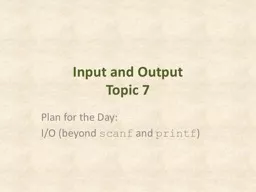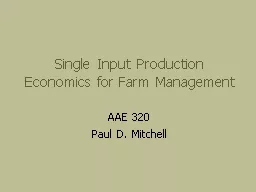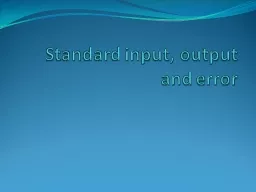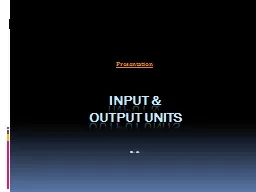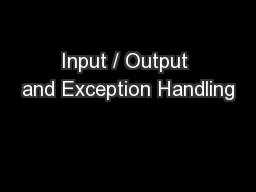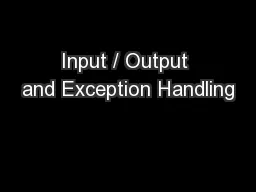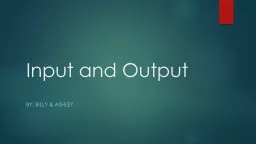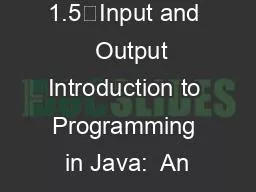PPT-Input and Output Topic 7
Author : marina-yarberry | Published Date : 2018-03-21
Plan for the Day IO beyond scanf and printf Standard String and File IO IO in C Input and output facilities provided by standard library lt stdioh gt and not
Presentation Embed Code
Download Presentation
Download Presentation The PPT/PDF document "Input and Output Topic 7" is the property of its rightful owner. Permission is granted to download and print the materials on this website for personal, non-commercial use only, and to display it on your personal computer provided you do not modify the materials and that you retain all copyright notices contained in the materials. By downloading content from our website, you accept the terms of this agreement.
Input and Output Topic 7: Transcript
Download Rules Of Document
"Input and Output Topic 7"The content belongs to its owner. You may download and print it for personal use, without modification, and keep all copyright notices. By downloading, you agree to these terms.
Related Documents

